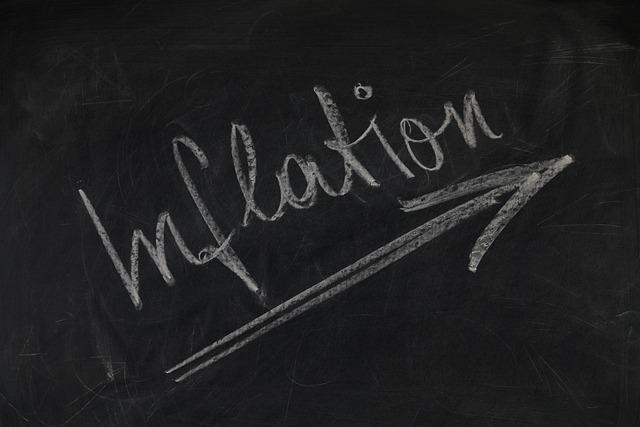As political turbulence continues to define the global landscape, Europe finds itself at a critical crossroads following the unexpected developments surrounding former President donald Trump’s administration. The shockwaves of his policies and rhetoric have left many European nations grappling with uncertainty and introspection, prompting a renewed focus on internal governance and leadership. in this context, all eyes are turning toward Germany’s upcoming election, which many see as a pivotal moment not only for the country but for the European Union as a whole. With Germany’s reputation as a stabilizing force in European politics at stake, the decisions made within its borders could have profound implications for transatlantic relations, economic policy, and the broader democratic values that unite europe. This article delves into the stakes of the German election, exploring how the continent’s hopes are intertwined with a nation that has often been viewed as a beacon of stability amid rising global challenges.
Shifting Alliances: The Impact of Trumps Presidency on European Politics

Donald Trump’s presidency has catalyzed a reconfiguration of political landscapes across europe, prompting shifts that were previously unthinkable for many European leaders. Discontent with transatlantic relations, coupled with a growing skepticism toward U.S. foreign policy, has led several European nations to evaluate their alliances more critically. Notably, Germany, as the EU’s largest economy, has emerged as a focal point for hopes of stability and leadership. Citizens and politicians alike are now questioning traditional allegiances, leading to a significant discourse on the future of the European Union and the potential for a more autonomous Europe in world affairs.
In this evolving context, a few key observations stand out:
- Political Alliances Shift: The rise of populist movements in Europe has paralleled the changes in U.S. leadership, as leaders re-align with more nationalistic sentiments.
- Increased Reliance on Germany: germany is poised to take on a leadership role previously held by the U.S., with increased diplomatic engagements and partnerships.
- Focus on Multilateralism: Many European countries are pushing for stronger EU unity and cooperation, distancing themselves from unilateral U.S. policies.
Amidst these dynamics, a recent analysis explored public sentiment in Germany towards the election and its implications for european politics:
| Public sentiment | Percentage |
|---|---|
| Support for EU Integration | 65% |
| Desire for Stronger Leadership | 72% |
| Concerns about Populism | 70% |
As Trump’s presidency unravels, the decisions made within Germany’s upcoming elections could dictate the trajectory of European politics for years to come. With an electorate increasingly fearful of isolationism and nationalism, the outcome could very well illustrate whether Europe unites under a common cause or continues to grapple with division.
Germanys Election as a Stabilizing Force for the European Union

The recent elections in Germany have emerged as a pivotal moment for the stability of the European Union, especially in the wake of rising populist sentiments across the continent and the unpredictable political climate fostered by figures such as Donald Trump. As one of the EU’s largest economies and a key diplomatic player, Germany’s political direction is closely watched by other member states, with many viewing its leadership as a potential stabilizing force. With the election results showcasing a coalition committed to multilateralism and a pro-European agenda, Germany is positioned to restore confidence in the European project and counter the fragmentation seen in recent years.
Germany’s renewed commitment to European integration will likely serve to reinforce collective action in addressing critical challenges such as migration, economic recovery, and climate change. The election outcome signals a rejection of isolationist policies and an embrace of cooperation, encouraging other EU nations to follow suit. key elements of Germany’s agenda include:
- Strengthening Franco-German relations to drive EU initiatives.
- Pursuing ambitious climate policies through coordinated efforts with other member states.
- Promoting economic recovery through increased investment in digital and green technologies.
This proactive stance is essential not only for Germany but for the entire European Union, as it navigates through a landscape fraught with division. By prioritizing collaboration and reinforcing its role as a leader, Germany has the potential to forge a new path forward, fostering resilience and unity within the bloc.
Key Issues at Stake: Voter Concerns Amidst Global Uncertainty

As uncertainty grips the globe, voters are increasingly navigating complex concerns that intertwine domestic issues with international implications. Economic instability, climate change, and social justice have emerged as pivotal topics driving public sentiment. with rising inflation affecting everyday lives, many are questioning how national leadership will respond to both immediate and long-term challenges. Public safety and security also weigh heavily on the minds of the electorate, prompting discussions around immigration policies and their impact on community cohesion. Voters are eager to understand how potential leaders plan to balance these conflicting demands while fostering a prosperous environment.
in this climate, trust in political institutions has waned, leading to a demand for transparency and accountability from candidates. Key issues that voters prioritize include:
- Healthcare accessibility: Ensuring everyone has adequate health coverage has become a major concern, especially post-pandemic.
- Environmental action: Voters are looking for concrete commitments to combat climate change, aware that inaction could lead to irreversible damage.
- Economic reform: Many seek innovative solutions to boost job creation and economic growth, particularly in regions hit hardest by recent crises.
To illustrate the stakes at play, the following table highlights recent polls reflecting voter sentiment on these key issues:
| Issue | Percentage of Voters Concerned |
|---|---|
| Healthcare Accessibility | 78% |
| environmental Action | 85% |
| Economic Reform | 72% |
Amidst this backdrop, the upcoming elections represent not just a moment of individual choice but a pivotal prospect to shape the future of governance in the context of global uncertainties. As Europe turns its gaze toward Germany, the hope is that voters will select leaders who can address these pressing issues with integrity and foresight.
Looking Ahead: Recommendations for Germanys Next Leader to Strengthen Europe

As germany prepares to elect its next leader, the stakes are higher than ever for the future of Europe. The political landscape has been shifted significantly in recent years, influenced by global events, particularly in the United States. To foster unity and resilience across the continent, the next chancellor must prioritize multilateralism, ensuring that Germany leads in crafting policies that bolster European solidarity. Focused engagement with European Union partners will be critical, especially in areas such as climate change, economic recovery, and security, transcending national interests to create a cohesive response to common challenges.
Moreover, it is indeed essential for Germany’s next leader to enhance collaboration among member states by promoting inclusive dialog and addressing regional disparities. By investing in initiatives that encourage innovation and lasting development, Germany can serve as a model for economic growth while supporting neighboring nations. Key recommendations include:
- Strengthening EU Institutions: Promote reforms that enhance decision-making processes within the EU.
- Fostering Defense Cooperation: Lead discussions on joint military capabilities and shared defense spending.
- Enhancing Climate Agreements: Advocate for ambitious climate targets that align with the Paris Agreement.
- Support for Migration Policies: Develop a comprehensive migration strategy that addresses humanitarian needs while respecting national laws.
To Conclude
as europe grapples with the seismic shifts initiated by Donald Trump’s presidency, the focus has inevitably turned to Germany’s upcoming election. With its pivotal role within the European Union and its influence on global politics, Germany stands at a crossroads, tasked with the challenge of restoring stability and confidence in the face of uncertainty. the outcome of this election could redefine not only Germany’s political landscape but also the continent’s response to populism and transatlantic relations. As citizens prepare to cast their votes, all eyes will be on Berlin, where the decisions made could resonate well beyond its borders, shaping the future of Europe in a rapidly changing world.The global community waits with bated breath, hoping Germany will emerge as a beacon of steadfast leadership amid the prevailing turbulence.







